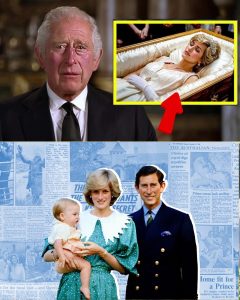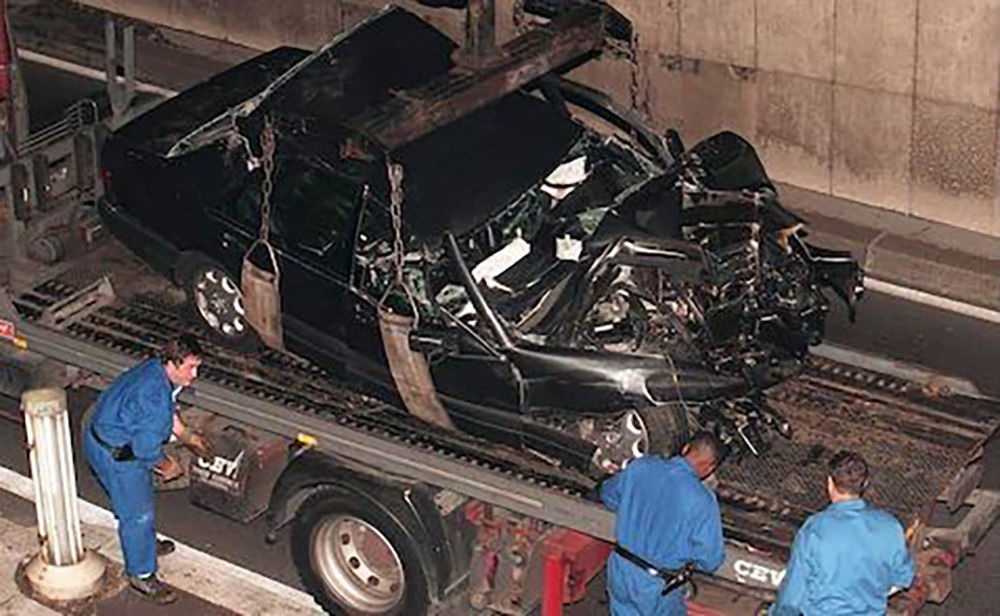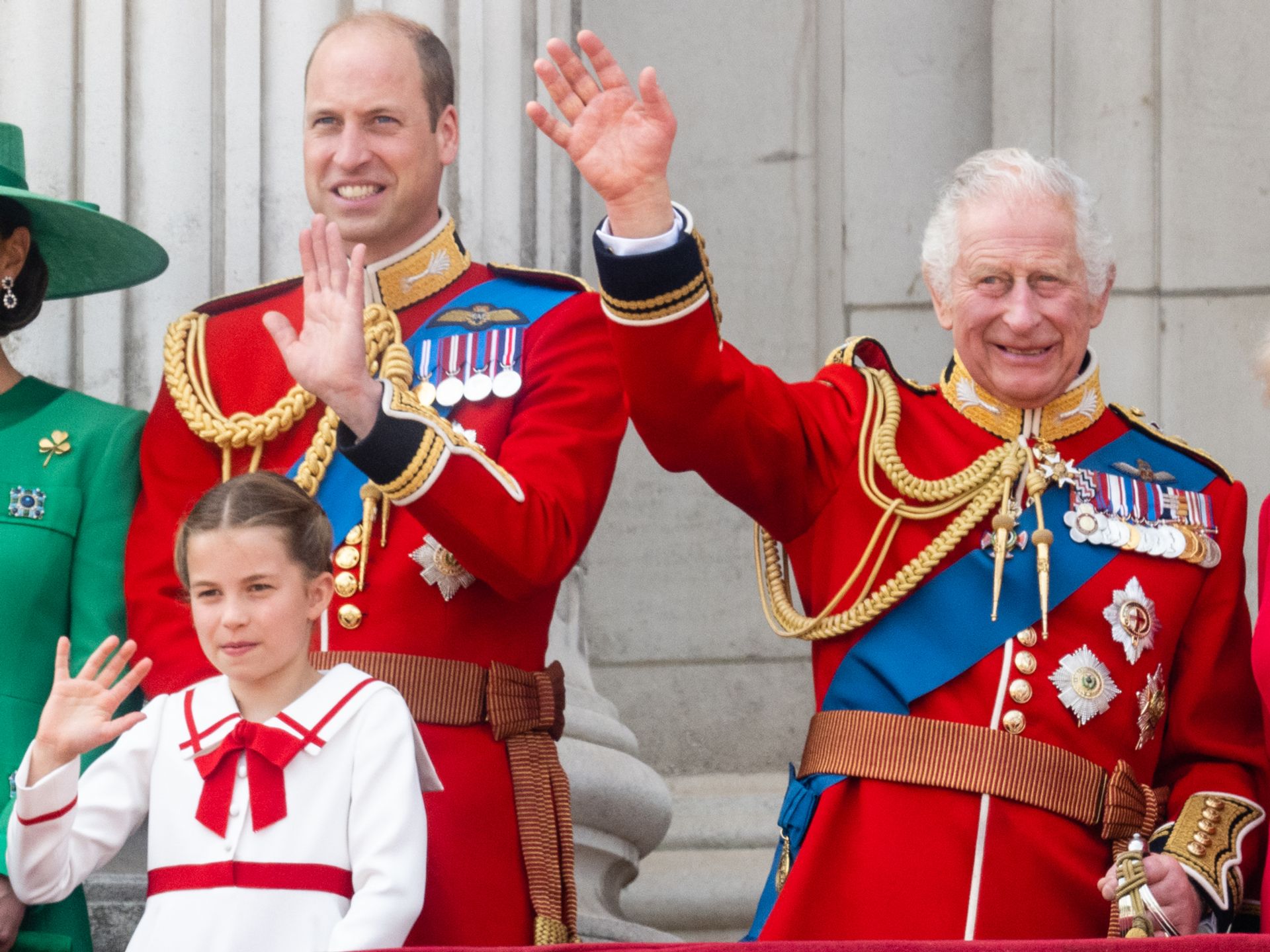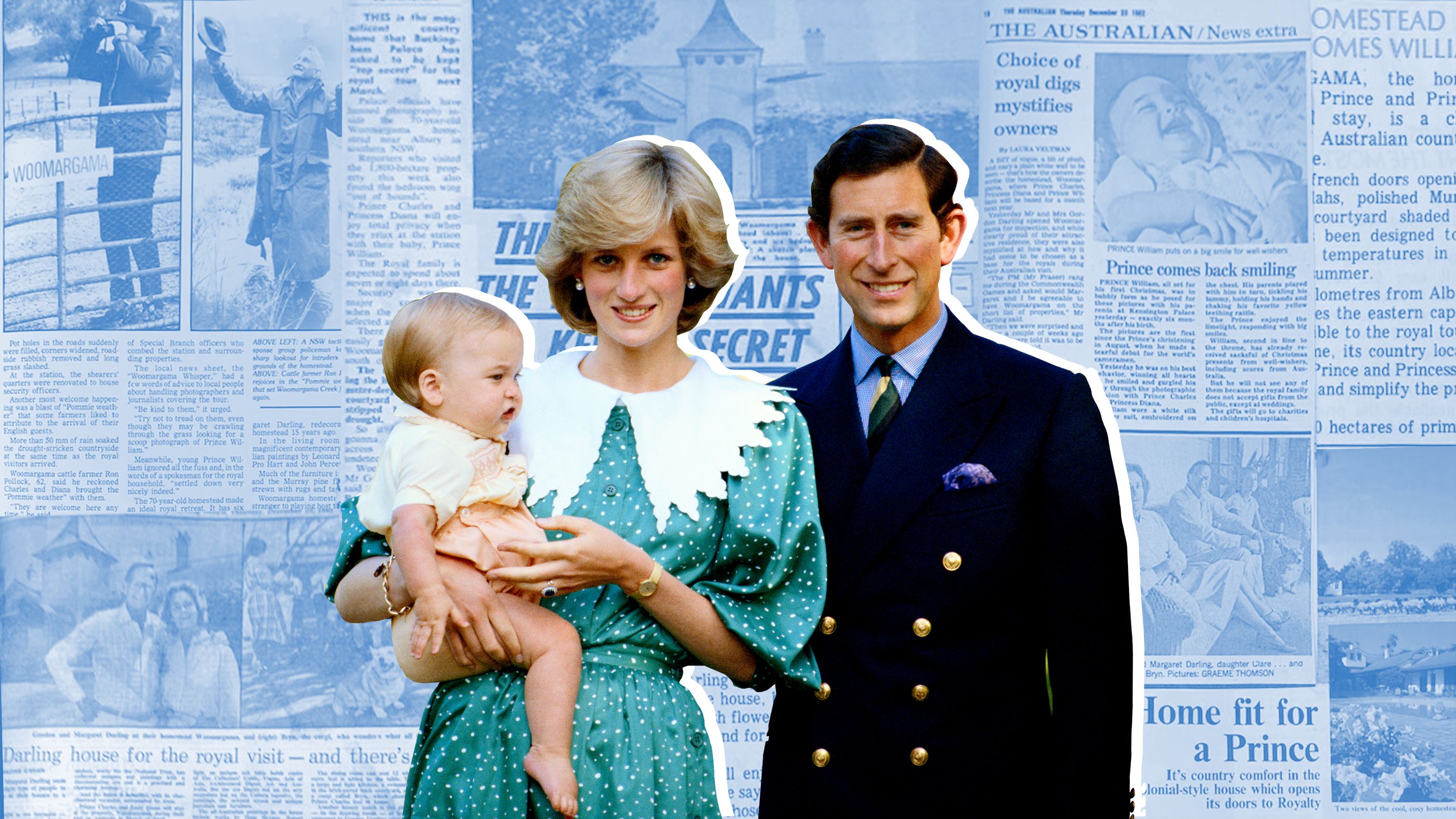After 28 Years, The World Reacts to King Charles’ Most Emotional Reflections Yet — And Why Princess Diana’s Memory Still Shakes the Monarchy

There are moments in history that never fade.
Moments so powerful, so painful, so deeply human that time doesn’t erase them — it simply wraps them in new layers of emotion.

For millions around the world, especially those who lived through the summer of 1997, the memory of Princess Diana’s sudden death is one of those moments.
It felt like the world stopped.
Like a light went out.
Like something sacred was shattered.
And for 28 years, the silence surrounding that night in Paris — the unanswered questions, the unspoken emotions, the royal distance — has left a wound that has never quite healed.
That is why, when a new wave of viral clips and online speculationsuggested that King Charles had offered his most personal reflections yet on Diana’s legacy and the impact of her loss, the internet ignited instantly.
But this story is not about proving whether the viral clips are real.
It’s about
why the world reacted so strongly.
Why people still carry that night inside them.
Why Princess Diana continues to move hearts across continents — especially in the United States.
And why the idea of King Charles addressing her memory — even indirectly — feels like an earthquake through the monarchy.
This is the emotional story behind that reaction.
A story about grief, legacy, humanity, and the fragile threads that connect the Royal Family to the people watching them.
THE NIGHT THE WORLD HELD ITS BREATH

To understand why 2025 erupted with emotion at the sight of a single reflective moment from the King, we must return to 1997 — to that night in Paris when the news broke.
Americans remember where they were.
Brits remember how the air felt.
The world remembers the disbelief.
Princess Diana wasn’t just a royal figure — she was a cultural force.
She was warmth in a world of cold protocol, vulnerability in a world of rehearsed speeches, connection in a world of distance.
And when she died, something in the global emotional landscape changed.
Millions felt robbed.
Millions felt abandoned.
Millions wanted answers — but answers never fully came.
Silence settled in.
Royal silence.
Public pain.
A divide that has lasted almost three decades.
So when clips surfaced online in 2025 showing King Charles speaking about “regret,” “unspoken truths,” and the “weight of memory,” the reaction wasn’t just curiosity.
It was 28 years of unprocessed emotion bursting back to the surface.
THE VIRAL MOMENT: A WHISPER THAT GREW INTO A STORM

The viral clip that sparked the storm wasn’t long.
It wasn’t dramatic.
It didn’t mention Diana by name.
But it carried something the public hasn’t seen often from King Charles:
Rawness.
Reflection.
Human weight.
He spoke about:
“the passing of time”
-
“the complexity of the past”
-
“the things one wishes had been different”
-
“the scars life leaves behind”
And for millions around the world — that was enough.
People connected the dots emotionally, even if the clip didn’t do so literally.
And once emotion takes over online, logic rarely stands a chance.
Suddenly, the narrative became:
“King Charles finally addressed Diana.”
Not because he said the words.
But because people heard
them in what he didn’t say.
It was grief by echo.
Memory by implication.
History awakened by a pause in a sentence.
WHY AMERICA REACTED SO STRONGLY

If there is one country that still holds Princess Diana as a near-mythic figure, it is the United States.
To Americans, Diana was:
-
a humanitarian
-
a mother fighting for her boys
-
a woman resisting an institution
-
a symbol of compassion
-
and a celebrity icon unmatched even today
She was the royal the US fell in love with — deeply, fiercely, unapologetically.
Generations grew up watching her on magazine covers, in TV interviews, walking landmine fields, comforting AIDS patients, hugging children, laughing with ordinary people.
So when anything connected to her name surfaces — especially something emotional — Americans respond with intensity, nostalgia, and protective love.
They remember the heartbreak.
They remember the funeral.
They remember William and Harry walking behind the coffin.
And they remember the King, then Prince Charles, remaining largely silent.
So the idea of him speaking — even in a way open to interpretation — hit American audiences hard.
THE MONARCHY’S UNHEALED WOUND

What makes Diana’s story uniquely painful is that it is not just a tragedy — it is a tragedy woven into the monarchy’s very foundation.
Her sons are the future of the crown.
Her memory lives in the public imagination stronger than many reigning monarchs.
Her influence on fashion, charity, and media still shapes the world.
And her absence is felt every time:
-
William attends a major event
-
Catherine wears a tiara linked to Diana
-
Harry appears in the press
-
the public compares “the old royal family” with “the new”
Diana is not the past.
Diana is the shadow cast across the present.
She is the invisible presence in every royal headline.
And the monarchy knows it.
Which is why even the suggestion of King Charles reflecting on the past — indirectly or emotionally — created a tremor that traveled through the entire institution.
THE PUBLIC’S QUESTION: IS THIS FINALLY CLOSURE?

The emotional storm online centered on one question:
“Does this mean the Royal Family is finally acknowledging the pain of that night?”
Not the details.
Not the theories.
Not the scandals.
But the pain.
For 28 years, many felt that the palace moved forward while people were still grieving.
That the institution continued, polished and intact, while the public carried the emotional pieces.
So when Charles appeared vulnerable, reflective, almost fragile — something shifted.
People didn’t see a king.
They saw a man.
A father.
Someone who lived through loss too.
The emotional meaning mattered more than the literal words.
THE SILENCE FROM THE PALACE — AND WHY IT MATTERS

One thing about the Royal Family is certain:
They do not chase rumors.
They do not explain viral clips.
They do not correct emotional narratives.
And true to form, they said nothing.
That silence did two things:
-
Protected the institution
-
Fanned the emotional fire
People filled the silence with their own interpretations:
-
“Is he apologizing?”
-
“Is he expressing regret?”
-
“Is this about Diana?”
-
“Is he preparing the world for something?”
The lack of clarity made the moment bigger, not smaller.
Silence is powerful.
Especially when it meets 28 years of unresolved emotion.
THE HUMAN SIDE OF KING CHARLES — A SIDE FEW HAVE SEEN

For decades, the global public saw Charles through a filter:
Duty.
Protocol.
Formality.
Distance.
Tradition.
But aging changes people.
Grief changes people.
Time changes people.
And in this viral moment — true or exaggerated — the public saw something they rarely associate with Charles:
Reflection.
Weariness.
Humanity.
Maybe even sorrow.
Even critics paused.
Because beneath the crown sits a man who has lived through:
-
a broken marriage
-
decades of public criticism
-
the loss of his former wife in a global tragedy
-
raising two grieving boys
-
carrying the weight of the crown in his seventies
-
intense media scrutiny
-
the responsibility of history
It is possible — even likely — that he carries unspoken emotions about that era.
And people saw a glimpse of that possibility, real or imagined.
DIANA’S LEGACY: WHY HER MEMORY STILL DEFINES A GENERATION

There is a reason the world reacts so powerfully to anything connected to Princess Diana:
Because she represented something the public rarely sees from royalty:
authentic emotion.
She cried publicly.
She laughed loudly.
She hugged freely.
She admitted pain.
She fought for humanity.
She battled loneliness.
She shared her wounds.
People related to her.
People loved her.
People mourned her as if she were family.
And the monarchy never again produced someone quite like her — though many see echoes of her warmth in Princess Catherine and Princess Charlotte.
Diana’s legacy is not written in books.
It is written in hearts.
That is why, even decades later, the idea of Charles acknowledging her impact sends shockwaves.
She is not just part of history.
She is part of identity.
THE REAL STORY: NOT WHAT WAS SAID, BUT WHAT WAS FELT

This blog is not about confirming the viral claims.
It’s about understanding the global emotional reaction — especially in the US.
Because what people heard in the King’s reflective moment was not a confession, nor a revelation.
What they heard was:
“After all these years… does he finally feel it too?”
The grief.
The loss.
The regret.
The memory.
The weight.
For many, that was enough.
Sometimes, acknowledgment matters more than explanation.
Emotion speaks louder than fact.
Reflection feels like closure.
And closure is what millions have been waiting for since 1997.
THE LINE THAT SHOOK THE INTERNET
What truly sent the internet into chaos wasn’t the main clip — it was the second line, shared in fragments, reposted with different captions, interpreted a thousand different ways:
“Some things stay with you forever.”
Did he say it about Diana?
Did the internet decide it for him?
Does it even matter?
Because emotionally — symbolically — those words hit a nerve the world still carries.
Loss stays with you.
Regret stays with you.
Love stays with you.
Memory stays with you.
And Diana stays with all of us.
THE FINAL REFLECTION: A STORY THAT WILL NEVER END

In truth, the monarchy may never publicly revisit the night in Paris.
They may never address the depth of the public’s pain.
They may never offer the closure people crave.
But sometimes, all it takes is a moment — even a misunderstood one — to reopen emotion, compassion, and conversation.
Princess Diana’s story is not over.
It continues through:
-
her sons
-
her grandchildren
-
Catherine’s compassion
-
the public’s memory
-
and the cultural impact she left behind
And perhaps, just perhaps, what people saw in King Charles’s reflective moment was not scandal, not confession, not revelation —
but humanity.
A reminder that even kings carry the past.
Even monarchs feel what they cannot say.
Even royalty is not immune to grief.
And maybe that is the closure people have been waiting for.
Not words.
Not explanations.
Just humanity.


